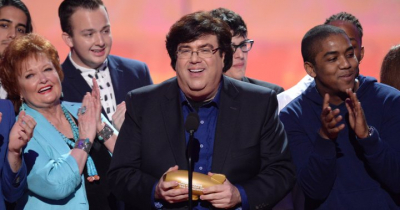Pioneering Cancer Research: Edmonton Doctor Collaborates with NASA to Study Cancer Samples in Space
Dr. Matthew Strickland, an Edmonton-born oncologist, is breaking new ground in the fight against cancer by harnessing the unique environment of space for research. His groundbreaking initiative involves sending cancer samples to the International Space Station (ISS) in collaboration with NASA.
Strickland and his team will investigate the effects of microgravity on cancer by studying human tumor cells grown into 3D models of patients' tumor organoids. This innovative approach aims to uncover insights into cancer biology that could lead to the development of more effective therapies for patients.
By studying how cancer behaves in the absence of gravity, Strickland hopes to identify unique cellular functions and interactions that may contribute to the aggressiveness of cancer. He believes that observing more aggressive changes in cancer in space could provide valuable insights into the mechanisms driving tumor growth.
Through meticulous analysis, Strickland aims to pinpoint the specific switches driving aggressive cancer biology. Armed with this knowledge, he envisions developing strategies to either shut down these switches or manipulate them in favor of the patient, ultimately thwarting aggressive cancer growth.
For Strickland, the opportunity to merge his passion for space exploration with his expertise in oncology is a dream realized. His journey from aspiring astronaut to pioneering oncologist underscores the intersection of science, exploration, and innovation.
Partnering with Space Tango, Strickland's team devised a plan to transport 98 patient-derived cancer organoids to the ISS for an extended period before returning them to Earth. This collaboration exemplifies the potential for interdisciplinary partnerships to drive groundbreaking scientific advancements.
As Strickland embarks on this ambitious endeavor, he epitomizes the spirit of innovation and collaboration that propels scientific discovery forward. With each step, he brings us closer to unlocking the mysteries of cancer and advancing the fight against this formidable disease.
Dr. Strickland elaborated on the process following the return of the cancer samples from space, highlighting the critical next steps in the research endeavor. "Once we recover them, we'll essentially pause the experiment in time, preserving the cells by freezing them down. Then, we'll meticulously analyze and dissect the cellular and molecular changes that occurred," he explained.
While acknowledging existing research on microgravity and cancer, Strickland emphasized the potential of this project to provide valuable insights that could directly benefit patients in clinical settings. "My vision is to leverage the data from experiments like ours, along with future endeavors, to design clinical trials aimed at advancing cancer treatment," he expressed optimistically.
Collaborating with colleague Aleksandra Stankovic, Director of the MGH Centre for Space Medicine Research, Strickland highlighted the broader implications of their work. Beyond cancer research, Stankovic's team is exploring how lessons learned from microgravity studies could inform the treatment of various conditions afflicting individuals on Earth, including neurodegenerative diseases and the development of 3D organs for transplantation.
This interdisciplinary approach underscores the potential for space-based research to catalyze advancements in medical science and benefit patients worldwide. As they delve deeper into the mysteries of microgravity, Strickland and Stankovic are at the forefront of a pioneering effort with far-reaching implications for healthcare innovation.
In conclusion, Dr. Matthew Strickland's groundbreaking research, in collaboration with NASA, holds immense promise in advancing our understanding of cancer and its treatment. By studying cancer samples in the unique environment of space, Strickland aims to uncover insights that could directly translate into more effective therapies for patients in the clinic. Moreover, his partnership with colleague Aleksandra Stankovic expands the scope of their work, offering potential benefits for individuals suffering from various ailments, including neurodegenerative diseases and the need for organ transplants. As they continue to push the boundaries of medical science, their interdisciplinary approach exemplifies the transformative power of space-based research in addressing some of the most pressing challenges in healthcare.






